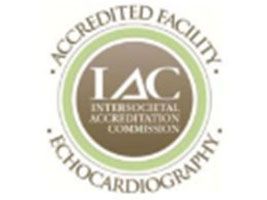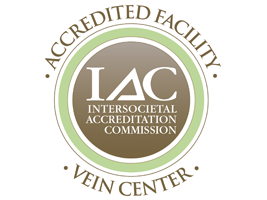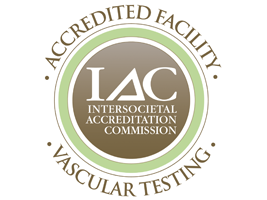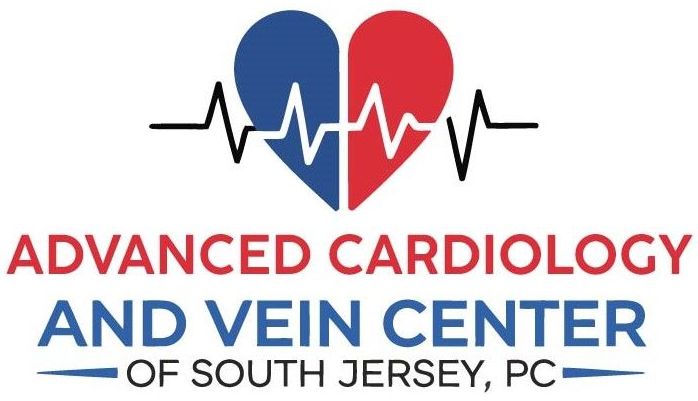6 Benefits of Regular Checkups With a Cardiology Doctor
In this article, we explore the numerous advantages of scheduling regular checkups with a cardiology doctor. Heart health is a crucial aspect of overall well-being, and consistent monitoring can prevent adverse conditions, promote longevity, and enhance quality of life. As cardiovascular disease continues to be a leading cause of death worldwide, proactive measures are essential. Regular interactions with a cardiology doctor not only support early detection but also facilitate personalized healthcare strategies. Understanding the full range of benefits can empower individuals to take control of their heart health proactively.
1. Early Detection of Cardiovascular Issues
Early detection of cardiovascular issues is a cornerstone of modern cardiology care. Regular checkups allow cardiologists to identify potential risk factors long before they develop into serious conditions. Cardiologists monitor patients' blood pressure during these visits, as hypertension is a significant risk factor for heart disease. By performing regular ECG tests, they can detect irregularities in heart rhythms that might otherwise go unnoticed. Through regular assessments, cardiologists can also evaluate cholesterol levels to take corrective measures when necessary.
According to the World Health Organization, more than four out of five cardiovascular disease (CVD) deaths result from heart attacks and strokes, with one-third occurring prematurely in individuals under 70 years old. This statistic highlights the importance of early detection and intervention in curbing the impact of heart disease. Regular cardiology checkups are a preventive measure that can significantly reduce these alarming figures by detecting heart abnormalities at an early stage. Detecting and managing cholesterol levels and other risk factors before they escalate into life-threatening conditions contributes substantially to reducing premature deaths. Hence, routine visits to a cardiology doctor serve as a proactive approach to combating one of the most critical health issues globally.
2. Personalized Heart Health Strategies
Customized treatment plans are one of the primary benefits of regular cardiology checkups. Every individual has unique cardiovascular needs, depending on factors such as age, gender, lifestyle, and genetic predispositions. By understanding these specifics, cardiologists can craft personalized treatment strategies that effectively address each patient's health requirements. Tailored exercise guidelines are a component of these strategies, offering patients specific physical activities that improve heart health without overstressing their cardiovascular system. Nutritional counseling provided by cardiologists helps patients understand dietary choices that support cardiovascular health and prevent disease.
Medication management is an additional aspect of personalized strategies that plays a crucial role in heart health. Cardiologists ensure that prescribed medications are suited to the patient's condition and monitor their efficacy and potential side effects. Implementing a meticulous medication plan avoids complications from drug interactions or incorrect dosages, optimizing the patient's therapeutic outcomes. By providing a personalized approach, cardiologists empower patients to take an active role in their heart health management. Overall, these strategies enhance patient adherence, leading to better heart health outcomes and improved quality of life.
3. Improved Patient Outcomes
Regular checkups with a cardiology doctor are instrumental in improving patient outcomes. One significant advantage of regular cardiology visits is the reduction in hospitalization rates for cardiac-related conditions. Proactive monitoring and management of cardiovascular health result in early interventions that prevent the need for extensive surgical procedures or emergency room visits. These checkups play a crucial role in educating patients about their conditions, facilitating behavioral changes that lead to healthier lifestyles. Moreover, they contribute to enhancing the overall quality of life by managing symptoms effectively and reducing the physical and psychological burden of cardiovascular disease.
Facilitating behavioral changes is key to achieving improved patient outcomes through regular cardiology checkups. Cardiologists encourage patients to adopt heart-healthy behaviors such as increased physical activity, smoking cessation, and dietary modifications. By tracking progress over time, healthcare providers can adjust recommendations to maximize effectiveness and address any obstacles patients encounter. Over time, these changes contribute to lasting heart health improvements, reducing the likelihood of future cardiovascular events. Additionally, the regular touchpoints provided by these checkups keep patients motivated and committed to maintaining a heart-healthy lifestyle, enhancing long-term outcomes.
4. Monitoring and Managing Chronic Conditions
Regular checkups with a cardiology doctor are essential for monitoring and managing chronic cardiovascular conditions effectively. For patients with heart failure, routine assessments help track the disease's progression and adjust treatment plans accordingly. Cardiologists can evaluate the effectiveness of medications, making necessary modifications based on the patient's response. Such proactive management ensures that patients maintain functionality and quality of life despite their condition. Regular monitoring also allows for timely interventions in case of exacerbations, minimizing complications and promoting stability.
The connection between diabetes and heart disease is a significant focus during regular cardiology checkups. Diabetes is a known risk factor for cardiovascular disease, necessitating special attention to heart health management in diabetic patients. Cardiologists work closely with patients to control blood sugar levels and address concurrent cardiovascular risk factors such as hypertension and dyslipidemia. Additionally, chronic obstructive pulmonary disease (COPD) and cardiovascular health are closely related, as COPD can exacerbate heart conditions. Regular monitoring by a cardiologist ensures that these interconnected health issues are effectively managed, improving overall outcomes and quality of life for affected patients.
5. Access to Advanced Diagnostic Tools
Regular checkups with a cardiology doctor provide patients with access to advanced diagnostic tools that enhance the assessment of heart health. One such tool is the echocardiogram, which uses ultrasound waves to create detailed images of the heart's structure and function. This non-invasive test allows cardiologists to detect abnormalities such as valvular defects, heart muscle weakness, and fluid buildup. Stress testing availability during regular checkups helps evaluate the heart's performance under physical exertion and identify potential areas of concern. These advanced diagnostic capabilities enable detailed assessments and improve the accuracy of diagnoses, leading to targeted interventions.
Access to these diagnostic tools is instrumental in tailoring personalized treatment plans for patients. The data obtained through these technologies enable cardiologists to make informed decisions regarding interventions, medication adjustments, and lifestyle recommendations. By utilizing advanced diagnostics, healthcare providers can more accurately assess disease progression and therapeutic efficacy, ensuring that patients receive the most effective care possible. Overall, the integration of advanced diagnostic tools in regular cardiology checkups leads to improved patient outcomes, more efficient management of heart conditions, and increased peace of mind for patients.
6. Building a Trusting Doctor-Patient Relationship
The doctor-patient relationship is a vital component of effective cardiology care, fostering open communication channels that improve healthcare outcomes. By establishing a trusting relationship, patients feel comfortable discussing concerns and symptoms, enabling healthcare providers to address issues promptly. Regular checkups facilitate a continuous feedback loop, allowing for adjustments to treatment plans based on the patient's evolving needs. When patients share their experiences and concerns openly, cardiologists gain a deeper understanding of each individual's unique situation, enhancing personalized care. This rapport is essential for ensuring that patients actively engage in their heart health management.
Patient empowerment and engagement are outcomes that stem from a strong doctor-patient relationship fortified through regular cardiology checkups. When patients feel empowered, they are more likely to take an active role in managing their heart health, strengthening their commitment to prescribed treatment plans. Engaged patients tend to be better informed, making educated decisions that positively impact their overall well-being. By fostering trust and collaboration, cardiologists motivate patients to maintain heart-healthy behaviors, such as adopting nutritious diets and engaging in regular exercise. Ultimately, a trusting relationship between patients and cardiology doctors builds a foundation for long-term heart health and improved life quality.
Regular checkups with a cardiology doctor provide a myriad of benefits, from early detection and personalized care to advanced diagnostics and improved patient outcomes. These checkups are vital in the proactive management of cardiovascular health, helping individuals identify and mitigate risk factors before they escalate into serious conditions. By fostering a trusting relationship with one's cardiologist, patients can ensure that they are taking proactive steps to maintain optimal heart health. Access to advanced diagnostic tools and personalized health strategies further empowers individuals in their journey towards better heart health. As a result, regular cardiology checkups are an invaluable investment in overall well-being and longevity. If you're looking for a cardiology doctor, contact Advanced Cardiology and Vein Center of South Jersey today.















Share On: